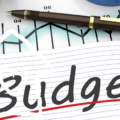Tips To Refinancing Your Home
December 5, 2023
Refinancing your home can be a strategic financial move. But it’s important to weigh its advantages and disadvantages to determine if it’s the right decision for your situation. Refinancing your home loan can have big benefits, such as saving you money on interest costs or giving you the option to cash out some of your home equity. Refinancing can be a better option for you if you have strong enough credit to qualify for good terms on the new loan.
The decision whether to refinance often comes down to the potential savings. The most important step, then, becomes identifying the loan options you qualify for and understanding your closing costs, interest rate, monthly payment and repayment timeline. All of this may sound like jargon right now. Refinancing is not all positive. It has its downsides if not evaluated and timed properly. Lets dive deep and figure it out.
Topics Covered: What is Refinancing Pros of Refinancing Your Home Cons of Refinancing Your Home How Can CreditU Help? Key Insights
What is Refinancing?
Refinancing is a financial strategy that involves replacing an existing mortgage with a new one, often under different terms. This process allows homeowners to adjust the details of their mortgage agreement to better align with their current financial situation, goals, or the changing market conditions. When you refinance, you pay off your current mortgage and create a new one. These typically come with a different interest rate, loan term, and monthly payment. The idea is to better these rates with a refinance. So targeting the right time and market conditions is crucial to the success of the refinancing process.
There maybe multiple reasons as to why you need to refinance.
- Some homeowners refinance to take advantage of lower interest rates, reducing their monthly payments and overall interest costs.
- Others might seek to shorten their loan term to pay off their mortgage faster, or switch from an adjustable-rate mortgage (ARM) to a fixed-rate mortgage for more predictable payments.
- Refinancing can provide a way to access home equity in cash, which can be used for home improvements, debt consolidation, or other significant expenses.
However, refinancing should not be viewed as a one-size-fits-all solution. It involves costs, such as closing fees, and requires careful consideration of your financial situation and long-term financial goals. It’s important to understand refinancing in its entirety. You must consider its potential to alter your financial picture, the risks involved as well as the other financial commitments that come along with the process.
Pros of Refinancing Your Home
Lower Interest Rates:
Refinancing your home can help you secure a lower interest rate, which can lead to lower monthly payments and reduced total interest costs over the life of the loan. By refinancing, you can take advantage of the current market conditions and potentially save thousands of dollars in interest payments. It’s important to note that the amount of money you save will depend on several factors. Your current interest rate, the new interest rate, and the length of your loan are the main ones. However, in most cases, refinancing can be a smart financial move that can help you save money and reduce your monthly mortgage payments.
Cons of Refinancing Your Home
Closing Costs:
Refinancing involves closing costs, typically 2-6% of the loan amount, which can be substantial and should be recouped over time through savings from the new loan. The different types of fees can range anything from appraisal fees, origination fees, attorney fees and more. Some fees may be negotiable but all of it will depend on the lender you choose to work with. So make sure you make an informed decision with thorough research to compare lenders to find the best terms that fit your financial situation.
Passible Longer Payoff Timeline & Higher Interest Rates:
If you refinance into a new long-term loan, you might extend the time to pay off your home and pay more in total interest. Also, refinancing for a longer term, even at a lower rate, could result in paying more interest over the life of the loan. Due to your financial condition, you take out a larger loan as part of a cash-out refinance, your debt-to-income ratio will rise. This will potentially make repayment more difficult or making it harder to borrow more in the future.
Impact on Credit Score
Refinancing can also have an impact on your credit score. Applying for a new loan can cause a temporary dip in your credit score. The lenders run a hard inquiry on your credit report to decide the feasibility of working with you. A hard inquiry can stay on your credit report for at least two years. The hard inquiry is unavoidable in the refinancing process and this is possibly something you will have to expect if you do decide to go ahead with it anyways.
How Can CreditU Help?
The health of your finances is the key factor on which you make big decisios such as refinancing your home. Thankfully, CreditU, our all-new finance app, is here to help you organize your finances and help you make an informed decision. With CreditU, you can quickly and easily set up a budget that is tailored to your specific needs and goals. The app provides you with a clear and concise overview of your income, expenses, and savings, making it easy to stay on top of your finances.
One of the most significant benefits of using CreditU is its ability to help you set and maintain financial goals. Whether you are considering refinancing your home, or simply trying to manage your everyday finances, the app makes it easy to create and track your progress towards your goals.
Overall, CreditU is an excellent tool for anyone looking to take control of their finances. With its intuitive interface, customizable budgeting tools, and powerful goal-setting features, the app makes it easy to create a budget that works for you and to stay on track towards your financial goals. So why wait? Download CreditU today and start taking control of your financial future!
Key Insights
- Whether refinancing is beneficial depends on factors like your current interest rate, how long you plan to stay in your home, and your financial goals.
- It’s crucial to calculate the break-even point, consider how the refinancing aligns with your long-term financial objectives.
- Consulting with a financial advisor can also help in making a well-informed decision.
- Refinancing a home can be a great way to save money on interest and reduce monthly payments. However, it’s important to weigh the pros and cons before making a decision. Here’s a detailed guide on the pros and cons of refinancing a home.
Last Updated on January 11, 2024 by Dilini Dias Dahanayake







